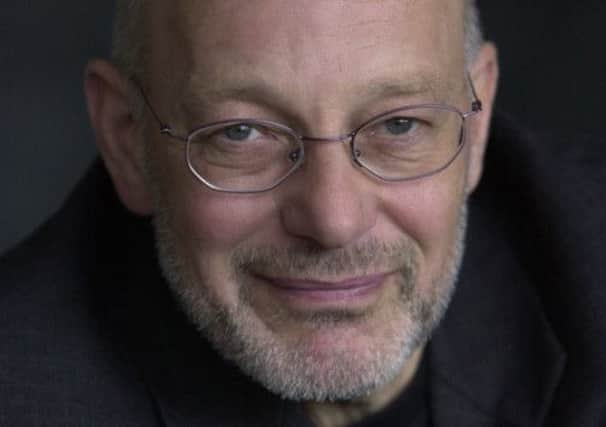Stronger China-Yorkshire links sought as young reach for stars


The university, in Guangzhou, formerly known as Canton, is at the centre of the major manufacturing area of the Pearl River Delta that includes Hong Kong, Shenzhen and Dongguan.
The area is regarded as the “workshop of the world” with everything being manufactured there from cars to mobile phones, baths, toys, electronics and computers.
Advertisement
Hide AdAdvertisement
Hide AdDr Baruch said the professorship will enable him to link the two universities, their staff and students to enrich both Bradford and Guangzhou.
“I want to link the Chinese students with the UK students so they think: ‘What can we do together?’
“Bradford is the leading university in the UK in innovation in pharmaceuticals and chemicals.
“We are a world leader in innovation that delivers a package on the web,” he said.
Advertisement
Hide AdAdvertisement
Hide AdDr Baruch is working in both the UK and China to get more children interested in science.
“Currently, only 30 per cent of secondary school children regard science as their preferred career option, yet children really enjoy doing innovation in practical science,” he said.
“The big problem is that many primary school teachers don’t know about science.
“I’m doing a lot of work with teachers. Most primary school teachers only do science up to GCSE.”
Advertisement
Hide AdAdvertisement
Hide AdDr Baruch’s team at Bradford University goes into schools to explain to teachers and children about the Bradford Robotic Telescope, an observatory in Tenerife which is remotely accessible to over 85,000 school children across the UK.
Dr Baruch, a member of the University of Bradford’s Artificial Intelligence Research Group, specialises in astronomy and technology and is currently the project manager for the Bradford Robotic Telescope.
“Kids are fascinated to learn why the moon changes its shape, why don’t Australians fall off the earth?
“Kids go home and start playing with it on the internet.
“We can see kids going in and playing on it night after night,” he said.
Advertisement
Hide AdAdvertisement
Hide AdHe added that children putting pressure on their teachers is driving the project’s popularity.
The university hopes that the Robotic Telescope will attract more young people to science, building up an innovative and competitive workforce for the future.
“The University of Bradford project is regarded as a world leader in generating innovation and creativity in schools which is why the Chinese first invited me to work with them,” said Dr Baruch.
“Since then the work has expanded and involves links between Chinese industry and their universities.
Advertisement
Hide AdAdvertisement
Hide Ad“I am now trying to involve our industries and our students linking up with their Chinese opposite numbers,” he added.
Over the last seven years the UK-China Health Tech Open Innovation team has been based in the University of Bradford. It now has over 50 Chinese institutions and over £15m in collaborative funding.
“My chair was awarded to help the development of innovation in China and so make collaboration more effective,” said Dr Baruch.
He said China had a major role to play in world manufacturing despite the rise in wages making it more expensive for overseas manufacturers to base themselves there.
Advertisement
Hide AdAdvertisement
Hide Ad“China was initially popular because labour is cheaper, but China has built a very good infrastructure of railways, roads and ports.
“The Chinese are keen to work and keen to learn.
“China is putting an enormous amount of investment into linking itself to companies in other countries,” he said.
The South China University of Technology said it was honouring Dr Baruch for his contributions to scientific education and for building an economy based on a highly skilled and well-educated workforce.
In China, Dr Baruch is working with the UK Association for Science Education and local authorities to bring practical science to Chinese schools.
Advertisement
Hide AdAdvertisement
Hide AdIn a statement The South China University of Technology said: “We expect the collaboration to develop new projects reflecting the dynamic synergy between ourselves and Dr Baruch that has existed for years.”
Professor Qian Huang of the South China Technology University added: “We are very pleased to work with Professor Baruch. The interaction of Chinese and Western science and culture is very dynamic and creative.
“His work with us and others in China in practical science is very welcome.”
Dr Baruch said the visiting professorship will involve him travelling to China around three times a year for a two to three week visit.